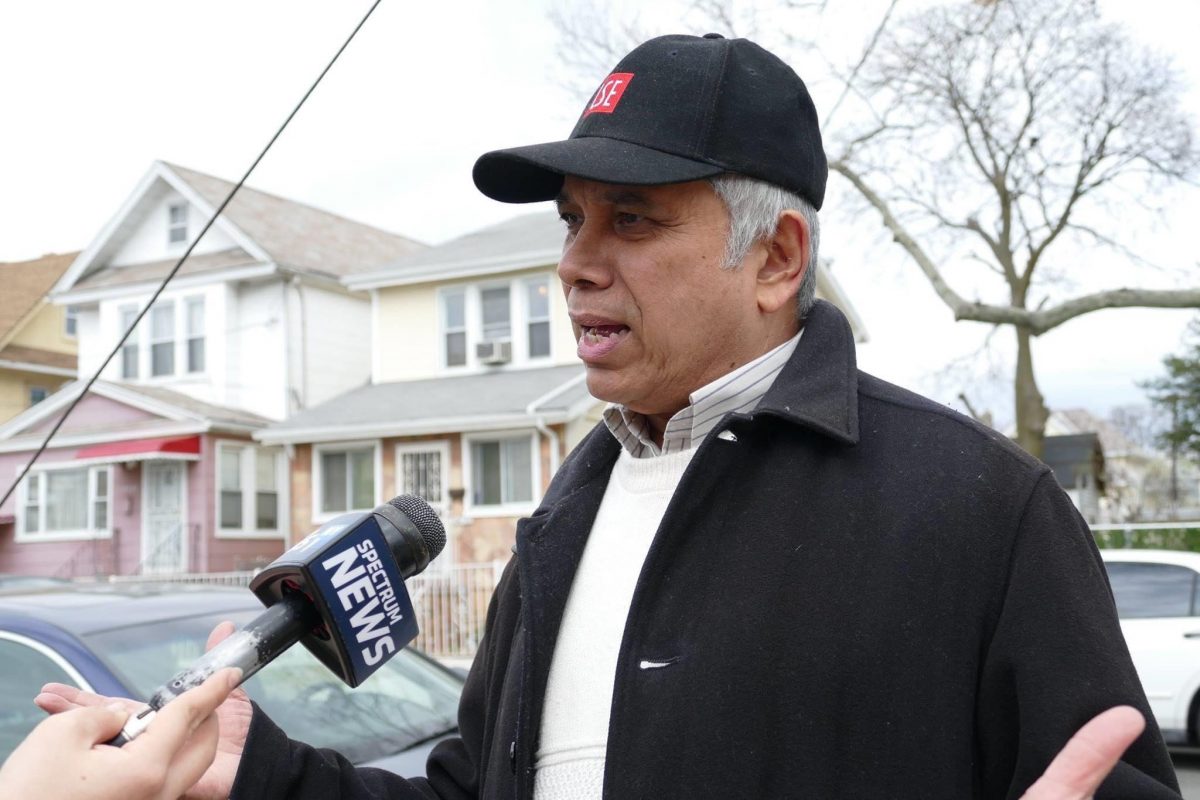Dr. Dhanpaul Narine, who is deeply involved with the Guyanese diaspora in New York said the main focus of the newly sworn in People’s Progressive Party/Civic (PPP/C) government should be on the “reduction of poverty” through training for jobs and business opportunities.
He also told Stabroek News (SN) that there should be the creation of more jobs and in the next five years, he would like struggling families to have better standards of living.
He is happy that government would continue the ‘Because we Care’ project, which would see every child in public and private schools, receive a $10,000 cash grant.
The graduate of the University of Guyana and the London School of Economics, said there should be development and expansion of the education sector as well as training for teachers to reinforce values, such as `please’ and `thank you’, which will be “the basis for a just and caring society”
The educator is “excited about the role of young people in the cabinet… The choice shows vision and courage and one gets the impression that they can’t wait to start to change things. The cabinet is a blend of youth and experience. We can feel the energy of the minsters as they set about to improve the lives of all Guyanese.”
He also wants the government to focus on “bridging the divide between the classes…” so that there would be “unity of all the races”
At his inauguration ceremony held on August 8, President Irfaan Ali had announced the setting aside of $4.5b to aid at the household level, those affected by the coronavirus disease (COVID-19) pandemic.
Dr. Narine said the government should ensure that the relief is spread evenly across the country and disbursed transparently.
There should also be accountability and transparency in spending generally because “avoiding scandals and having good conduct are of paramount importance”
He called on the government to include the Guyanese diaspora in its plans and to “devise a diaspora policy that is consistent with the development goals of Guyana… The goals should be for the diaspora to see itself as an extension of Guyana, and not to be cut off from it.”
The professor said that “the diaspora can contribute to the development of the country if the government appoints them for positions back home.” They are willing to “play a pivotal role in technology transfer, constitutional and judicial reforms, health and wellness, information exchange and investment.
This newspaper interviewed Dr. Narine along with other members of the Guyanese diaspora; Dr. Terrence Blackman, Dustin Fraser, Dr. Lear Matthews, Jeff Chanchall, Naidoo Veerapen and James Richmond to share their views on the new government.
Dr. Matthews, a professor at State University of New York, Empire State College said that in order to ensure meaningful contribution of the diaspora, the government must develop an effective Diaspora Engagement Policy, with input from members of the diaspora.
With reference to the ‘Local Content’ in the nascent oil and gas industry, Dr Matthews said, “Provi-sions must be made expeditiously for job training and education to facilitate employment for youth, as well as local business entrepreneurs and investors.”
He also wants the working class in Guyana to be provided with adequate healthcare, quality education, effective funding for programmes for the “developmentally disabled, including preventive mental health services, early childhood development services and adequate provisions for the elderly.”
The former lecturer at the University of Guyana said it is “important for young people to be represented in the cabinet” and that it is significant because young people have apparently been “shut out of the political institutions, which seem to have been securely dominated by the old political establishment.”
That, along with an apparent consistently high youth unemployment rate, has accounted for an 89 percent emigration rate of tertiary educated youth.
He said too that transparency and accountability must be a natural role of the government and should be demonstrated through honesty, inclusiveness (of the opposition), selflessness, devoid of cronyism and characterised by a sense of responsibility.
The five-year plan must reflect prosperity for all Guyanese, regardless of ethnicity, gender or religion, to include adequate healthcare, decent wages and adequate housing.
Unemployment
Dustin Fraser, who is involved in the field of cybersecurity and is pursuing a Ph.D. in analytics and decision making, said the government should focus on an unemployment analysis in regions one to ten.
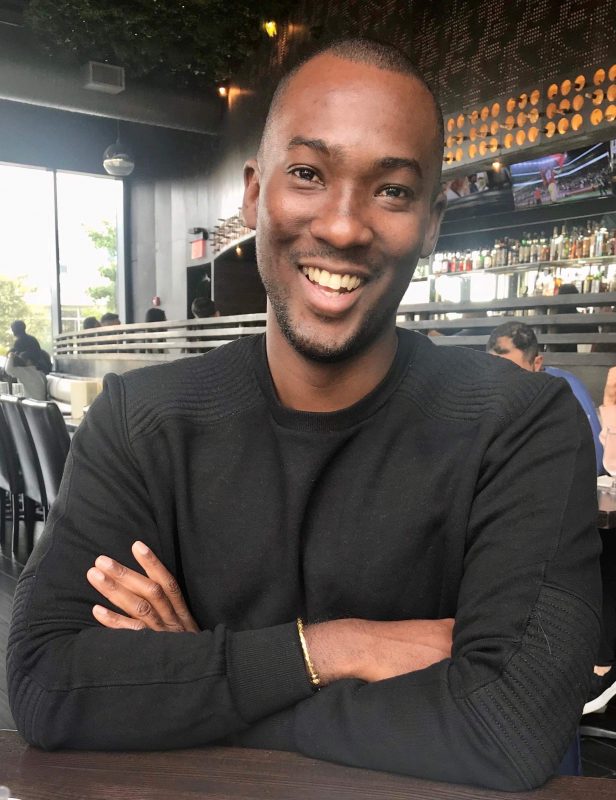
Based on a research he had done with data collected from the Guyana Elections Commission office, it was found that there is a 20 percent unemployment rate across each region. This includes many qualified young people that the government can reach out to.
Fraser said that when the previous APNU+AFC government decided to close the sugar estates shortly after taking office in 2015, then President David Granger did not consult with the people nor carry out an assessment of the social and economic impact and provide alternative plans.
He agrees with the idea of reopening the estates as it would help to drive the economy and keep people employed, bringing an end to their frustration. Apart from sugar, farmers can use the land to cultivate cash crops, rice or even bird seeds for exporting.
Fraser feels that the young people in the cabinet would bring new energy and believes that it can motivate other youths in high school to aspire to achieve great things.
He noted that, “Young people want to see value, they want to see things happening intrinsically… Guyana is at an accelerated pace, not just with the oil money but with developing our infrastructure.”
Pointing out that young people want opportunity, Fraser, a former Queen’s College student and Cuban scholar who has experience in analytics, cybersecurity, and engineering, said that he grew up as a poor child and could have been left with only his CXC subjects.
He was grateful that the Jagdeo administration had granted him a scholarship to study informatics engineering in Cuba.
He said that education changed his life and as a member of the diaspora, he is “willing to give back free training to the youths in Guyana.”
He plans to pitch an idea to the new minister of Culture, Youth & Sport, Charles Ramson Jr. so he can provide training in technology and STEM (science, technology, engineering and mathematics), as a cultural paradigm shift.
His intention is to support the government by advancing cybersecurity education to improve accountability and transparency, while also providing new socio-economic opportunities and innovation.
His current research explores these themes to support informed policy and programme intervention. Fraser affirms that the diaspora is essential in promoting social and economic development in Guyana.
He pointed out that he sent his idea about a Diaspora Strategy Map to the previous administration, but they ignored it and hopes that it would not be the same with this government.
He likes the fact that the Vice President, Bharrat Jagdeo wants to “industrialise our country and the first step in doing so is [with] electricity. …The current production is less than the demand for Guyana.”
Fraser said that “the country needs to apply technology to have transparency and accountability. A lot of the key accounting systems; election and import and export, must use information technology. That way the personal biases would be removed and decision-making policies, standards and procedures would be built into systems.”
In five years, he wants to see “Guyana bridging the unemployment gap so our young people can have a sense of belonging and comfort because they are able to make money from any type of job.
The environment for business should be opened and looked at from a more social prospective “because that is what drives innovation and the workforce.”
Cohesive framework
Dr. Blackman, an associate professor of mathematics and founding member of the undergraduate programme at Medgar Evers College, told SN, that in the immediate (next 90 days) plans, the government should focus on “developing a cohesive framework to comprehensively address the COVID-19 health threat and its concomitant effects and establishing some mechanisms to provide economic relief and stability to struggling families.”
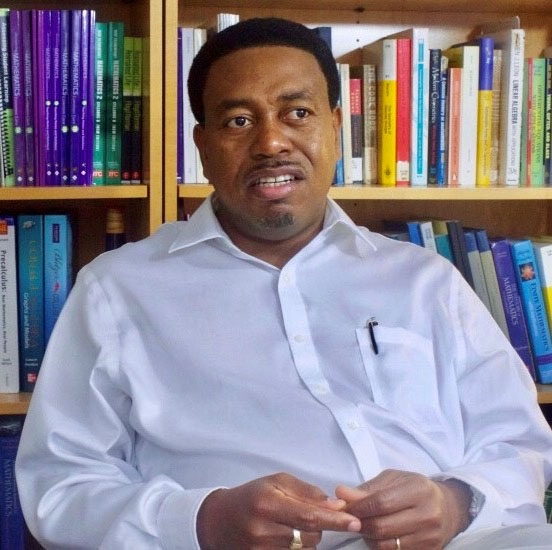
He said President Ali’s call for hard work and competence resonates with him, particularly of the setting aside of $4.5b to help families affected by COVID-19, “the ambition to position Guyana as a centre for economic activity in the region, the goal of a 50 percent reduction in the cost of energy and the expressed commitment to integrity and transparency in government.”
During the next 18 to 24 months, he said, government should focus on developing, refining, disseminating, and achieving some national consensus on a plan for the use of the oil resources.
Recognising that many big projects take longer than 5 years to execute, he pointed out the need for “a national plan and consensus” that goes beyond the political cycle.
He noted that to make progress and for channeling the oil revenues effectively and efficiently in order to improve the state of general and public services, the country “does not have to start over every time we have a change in government.”
According to him, “Guyana’s future requires innovative ideas and broad engagement…,” stressing the need for the focus on “education, particularly vocational training in construction, roads, agriculture, and oil & gas opportunities.”
He also sees the need for workforce development and training and for providing “access to the career education, training and support services needed to prepare for and participate in high-demand occupations that pay family-sustaining wages for all Guyanese.”
He would also like to see private sector and business opportunities for the working class as well as other developments, particularly with national access to a robust digital infrastructure, roads, and air and shipping ports.
In the long term, government should focus on the “creation of a national development plan around which we can achieve consensus and stability,” for instance the Guyana low carbon development strategy and the Guyana Green State Development Strategy.
Dr. Blackman, who is a graduate from Queen’s College, the Brooklyn College and the City University of New York Graduate School, said it is a pleasure and a welcome development to see young people in the Cabinet.
“There is a simple idea here, [that] youth is energy and we need energy to get the job done. They are also likely to bring current and relevant methods of executing plans and their comfort with the use of digital platforms will support transparency and efficiency in Government,” he posited.
“The young women in senior Cabinet roles are a signal that will have a number of positive effects in the future and it is likely that this ‘Female Caucus’ will do much to change the ‘business as usual’ approach to Guyanese governance. It is my opinion that they will positively impact the trajectory of transparency and accountability in the government.”
In the next five years, he would like to see an improved public service sector, a clear plan for addressing the diversification of the sugar industry and its workers and the decentralisation of public services in bringing the machinery of the government closer to the people so as to mitigate the overcrowding of Georgetown.
He would also like to see a housing and transportation policy that better supports Guyanese for housing opportunities in areas further away from the city centre and an effort to properly integrate communities like Sophia through normalising roads, schools, housing, drainage electricity and water.
He also calls for the strengthening of the University of Guyana at all levels, the Government Technical Institute, the Guyana School of Agriculture and other technical and vocational schools as well as the research infrastructure on the Sugar Estates.
Chanchall, the proprietor of Realty Program Consultants who has been in real estate management for 30 years, wants to see Guyana becoming the top oil producing country in the Caribbean.
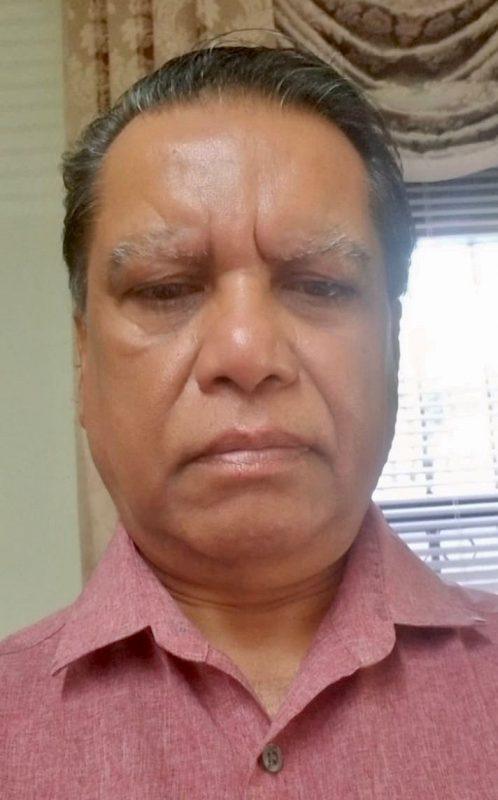
He hopes that the oil funds that have been kept in the reserve would be put to good use as soon as possible when they are released and provide a lot of benefits for the citizens.
He is happy that the government would continue to provide the $10,000 cash grant to the students and wants that to become a permanent part of the education system. He said too that there should be school-feeding programme at all of the schools throughout the country.
He likes the fact that the country is moving ahead with development and that even though the government has only been in office for a few weeks, it has taken actions to correct some of the wrongs of the previous government, such as letting their “friends” benefit from high paying jobs.
“We don’t want to see that happening again. We want people to be paid in accordance with the laws of the country,” he told SN.
He observed that the government has been aggressive so far and said it is a good idea to be going back to projects that it had started in its previous term, such as the Amaila Falls Hydropower.
He noted that the government has a lot of work to do in terms of upgrading the fire service and other entities to bring them up to par.
Chanchall also commended the president on his plans to allocate funds to families affected as a result of COVID-19.
“It is good that he is making that a priority because the poor people in Guyana are still suffering, even the middle class are suffering and they desperately need relief…,” he said.
He has noticed that the COVID-19 cases are increasing in Guyana but he is not too alarmed because he knows that it is because the amount of testing has increased, reiterating that, “The more you test, the more you will find.”
He said the border with Brazil is porous and that with mining the industry being big, people are crossing back and forth. Brazil is the country with the second most cases.
Constitutional reform
Veerapen, the owner of NRV Tax and Insurance Services, said based on experiences with the results of the last elections being declared five months later, constitutional reform should be high on the list of priorities, “to plug all loopholes…”
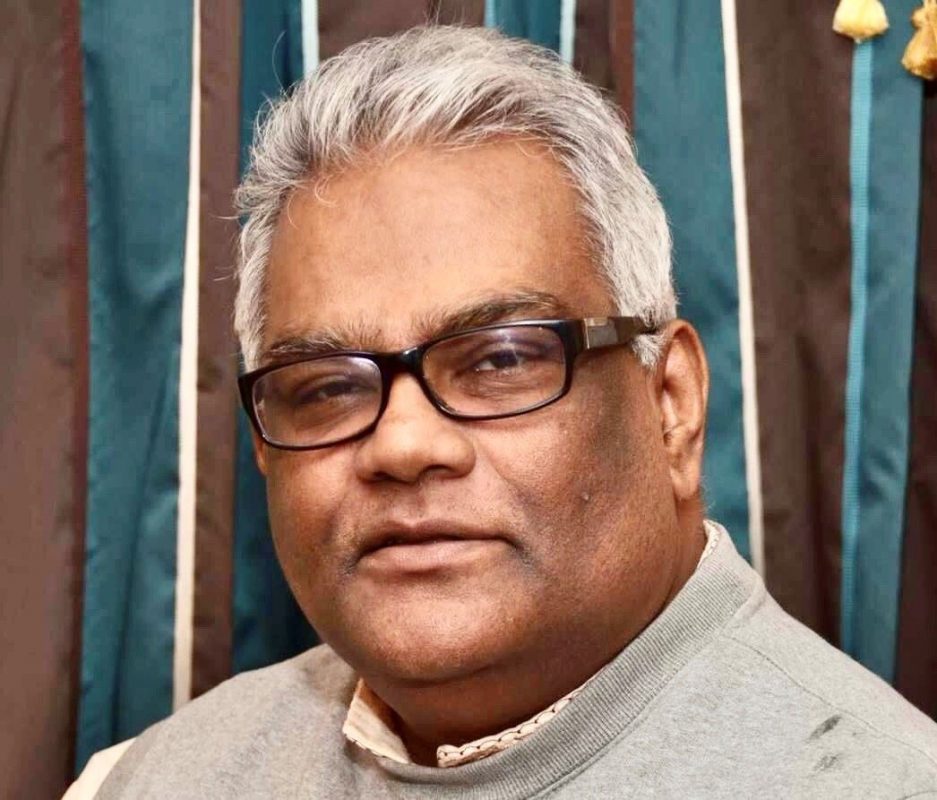
The constitutional reform should reflect that there is no racism and should help to bridge the racial gap. All Guyanese, regardless of race or religion should be encouraged to participate and have a say in decision-making.
He said too that the ExxonMobil oil deal was not done in favour of Guyana and that the contract needs to be scrutinised and amended to suit the Guyanese people.
“If they [government] can get an agreement with the opposition, the business community and all stakeholders, it would be a no-lose situation… The president should work towards getting people co-operating and working along with him. He can put an end to suspicion and win people over and get them to contribute ideas to what he wants to do.”
Veerapen is happy that a lot of young people have been included in the cabinet, saying that it “augurs well for development because they would work and contribute with fresh ideas.”
He said the government’s manifesto looks very impressive, but from his experience, “politicians say all these nice things to get elected and when it is time to deliver, they say they did not have enough time or they blame the opposition for preventing them from passing legislation.”
He called for regular audits of government spending to ensure transparency and accountability. “The government should not get themselves caught up in nonsensical accusations about corruption. We know that all over the world politicians are corrupt but the PPP should try to be different…,” Veerapen said.
He said that the salary of the political appointees should be kept at a minimum because it is open to abuse and that “whoever is the watchdog in the government should pay careful attention…”
In five years, he wants to see Guyanese enjoying a higher standard of living and more houses built so people would not use a huge portion of their salary on rent. He also wants Guyana to have good roads and schools and a reduction of racial animosity.
He said the racial tension can only change “if our education system is carefully planned and the syllabuses in schools are geared toward helping students to respect other people.”
Veerapen who lost a lot of people he knew to COVID-19, urged everyone to take lessons from the virus and how easily people can die from it and “change the way you think.”
He is hopeful that funds from the “oil bonanza” would be used to renovate and upgrade schools and hospitals and to provide adequate drugs.
Standard of living
Richmond, a pastor and a clergy advisor to the Mayor of New York, said “any government worth its salt needs to take care of the poor people” by raising their salaries and their standard of living.
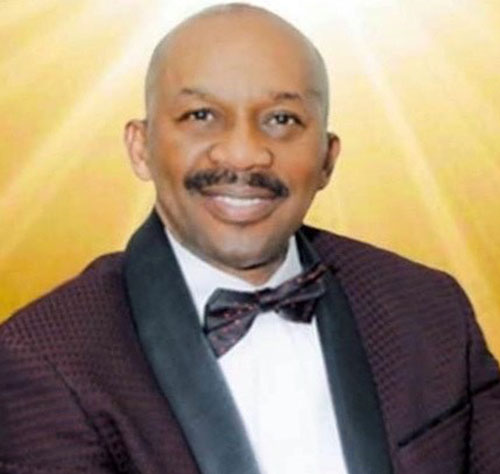
“As long as people have food and shelter they do not care who is in office. I think we should come to the point where the government needs to take care of the wellbeing of its people who work hard,” he told SN.
He pointed out that people in poverty are not lazy as they are perceived to be, but it is just that they lack opportunities. He too called on the government to use the resources to provide job opportunities so that the people can benefit.
Richmond, a former radiologist who worked in the X-ray departments of the Georgetown, New Amsterdam and Fort Wellington hospitals, said although medical care is free, drugs and other items may not always be available and patients would have to purchase them.
“That is something that needs fixing; government should make the hospitals more efficient. With the resources that they would get from oil, they should take care of those issues to ensure that the people can access quality health care,” Richmond said.
He wants the government to tap the education system and so that in the next five years the country can have “technology that can compete with anywhere in the world…”
He would also like to see “constitutional reform in the future and I am not talking about shared governance like some people. I believe that a democracy must have opposition and government.”
He said the two major races in Guyana are at loggerheads over their political parties, particularly at election time, and he wants to see a system put in place so that both groups can live together in harmony.
For that to happen, he explained, 30 percent of development of the infrastructure, education and job opportunities, “should go toward the Indian community and 30 percent to the black community, 20 percent to the Amerindian community and 20 percent to the other races. Only then racism can stop in Guyana and citizens would not care which party is in office.”
He noted too that in order to have transparency and accountability, “everything in the industries like rice, oil and gold should be declared, quarterly or every six months… In this technological age, people should be able to go on the computer and see how much the Guyana government has realised from gold and allocated to health, education… The information should be on a spreadsheet that anybody can pull down. When the government can get to that stage, it would get to real transparency.”
In the next five years, he would like to see Guyana “united as six people, where race becomes a non-issue. If the government can use that formula and unity comes, nobody will cry. Nobody would think they are losing something because a different party is in office.”
He also wants to see Guyana becoming prosperous and its people benefit economically from the industries, particularly the oil industry.
As a poet and a “man of culture,” he would like to see Guyanese culture being promoted and celebrated, noting that it is important for people to know and reflect on their history and bring the pride of Guyanese to everyone. He was impressed with the cultural presentation at the inauguration of President Ali.
